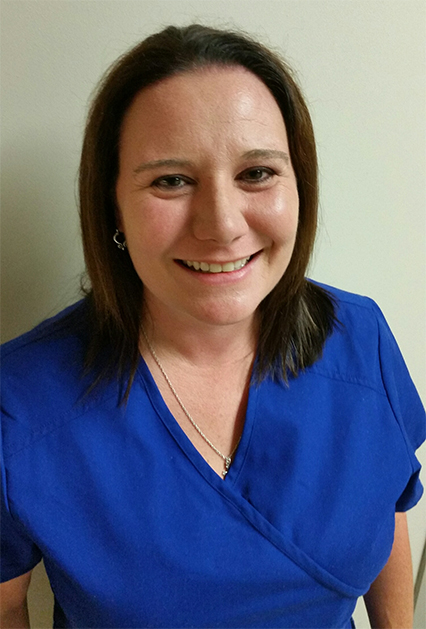
This month in our Breaking Through the Excuses series, we’ll learn how Laura Hartman, MHA, RRT, RRT-NPS, RRT-ACCS, who recently completed her master’s program, advanced her degree.
Laura’s Story

“I am a respiratory care supervisor at Lakewood Ranch Medical Center in Bradenton, Florida,” Hartman said. “In many ways, my Master of Healthcare Administration degree has been less grueling than my bachelor’s program because all of the courses are relevant to my goals, making it easier to study and research.”
Hartman pursued a Master of Healthcare Administration program online after evaluating and establishing career goals a few years ago.
“I realized that I wanted to impact patients and the profession beyond bedside clinical care,” Hartman said.
For Hartman, the obstacles she faced were common: time and finances. She finished her program with a school loan to repay; however, she now feels more prepared for the next step in her career.
“I anticipate that my educational investment will overcome the financial burden of a student loan in the long run,” Hartman said. “The time commitment to complete my program was significant; I worked my full-time job, and the program design was 16-week courses condensed into 8 weeks. I took a few terms off during ‘season’ when I knew my energy level wouldn’t be as high, but I finished in about three years.”
Staying ahead of deadlines
Hartman gave herself earlier deadlines than the due dates so that if anything came up at work, she would have the time needed.
“By planning ahead and chipping away at papers and discussion posts, even when I couldn’t commit the time to complete an entire assignment, I was able to make it through,” Hartman said.
Meet your needs
“My advice for anyone thinking about pursuing an advanced degree is to find a program that meets your needs, and to just start,” Hartman said. “Even though I’m not an administrator currently, I have applied what I have learned and expanded my knowledge. It has been helpful to see the bigger picture of healthcare delivery and recognize how respiratory care can have a positive effect in different avenues.”
Hartman also expresses appreciation for having a respiratory director that was willing to teach her along the way. That teaching helped all that Hartman was learning fit together. She was also able to participate in capital budget proposals, business plans, and other administrative tasks to enhance her understanding.
“Communicating your goals to leadership may help in getting involved in additional projects that will add value to the coursework,” Hartman said.
Relying on a network of experts
The AARC resources that helped Hartman in her education journey include the access to expertise of the leaders of the profession and in using online resources.
“By attending the Summer Forum management section, Congress, and through AARConnect, I have a better understanding of challenges faced by leaders and how to overcome them,” Hartman said. “This has helped in writing papers and applying healthcare administration tools to Respiratory Care.”
She continued to explain that the online resources, such as white papers, clinical research in the Respiratory Care Journal, and lobbying information published by the AARC, have been helpful for conducting research in many of her courses.
Stay tuned next month as we meet Christopher Price BS, RRT, RRT-ACCS, who graduate’s this year with his master’s degree program. Price will be the first member of his family to earn this level of academic achievement.